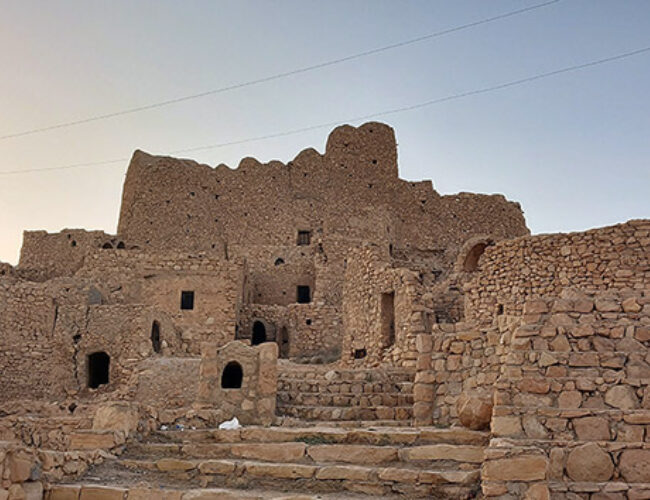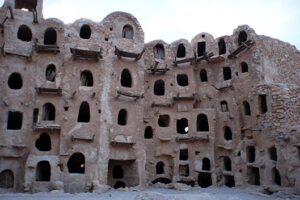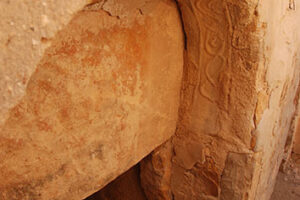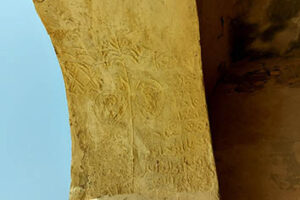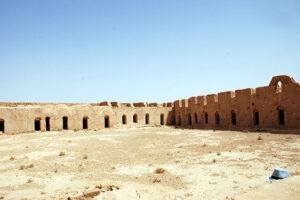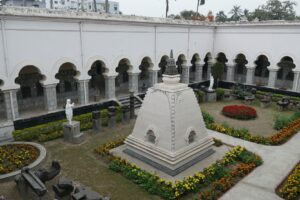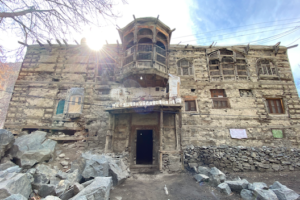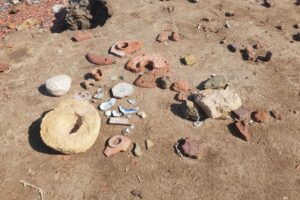Partnership for Heritage: Safeguarding Traditional Architecture and Intangible heritage of Tataouine (Tunisia) and the Nafusa mountains (Libya)
This project will document the rich and varied heritage of the indigenous Imazighen communities living in the Nafusa Mountains (Libya) and in Tataouine, Tunisia.
The rich and varied heritage of the indigenous Imazighen communities living in the Nafusa Mountains (Libya) and in in Tataouine, Tunisia will be documented and conserved through the protection of two ancient, fortified granaries at risk due to climate change. Alongside the restoration of these unique buildings, a programme documenting and reviving local craft and associated skills will support the development of female-led local businesses.
Project Details
Location: Libya, Tunisia, Northern Africa, Africa
Organiser(s):
University of the West of England - UWE Bristol
Project partner(s): Durham University
Institut National du Patrimoine de Tunisie
Department of Antiquities of Libya
Azzaytuna University
Institut superieur Des Arts et Métiers de Tataouine - Association du Ksour
Aran NKabaw Foundation for Restoration of Ancient Building
Funder(s):
British Council Cultural Protection Fund in partnership with DCMS
Funding received: £534,261.00
Commencement Date: 12/2022
Project Status: Active
Project owner? Update this project
